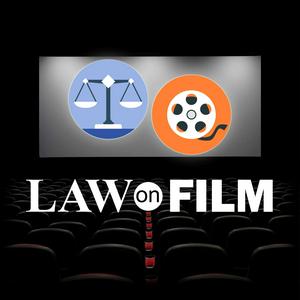Francis Ford Coppola’s The Godfather (1972) is widely regarded as one of the greatest films of all time. Based on Mario Puzo’s best-selling 1969 novel, The Godfather depicts the rise and legacy of the Corleone family, a fictional Italian-American organized crime family led by Vito Corleone and the transformation of his son Michael from a reluctant outsider to a ruthless mafia boss. The film, which features an ensemble cast of American film icons, including Marlon Brando, Al Pacino, James Caan, Robert Duval, Diane Keaton, Talia Shire, and John Cazale, explores themes of family, power, and the American Dream. It also provides a window into the relationship between law and culture while offering complex perspectives on the meaning of justice. Timestamps: 0:00 Introduction 3:08 “I believe in America” 12:27 Business and the personal 14:07 Competing views of law and justice in America 16:57 The legitimate and illegitimate, the sacred and the profane20:52 Narratives about the mafia 26:59 The consigliere 33:59 Tensions between tradition and modernity 39:37 Ritual44:41 Performance and power 49:11 Retribution 55:18 The mafia and The Godfather 56:48 Codes of loyalty 102:39 The immigrant experience Further reading: Barber, Nicholas, “The Godfather: Have we misunderstood America's greatest film?”, BBC (Mar. 13, 2022) Coppola, Francis Ford, The Godfather Notebook (2016) Denvir, John, “The Slotting Function: How Movies Influence Political Decision,” 28 Vermont L. Rev. 799 (2003-04) Gambrell, Brian C., “Leave the Representation, Take the Cannoli: The Crime Fraud Exception to the Attorney-Client Privilege and ‘The Godfather,’” 23 South Carolina Lawyer (2011-12) Papke, David, “Myth and Meaning: Francis Ford Coppola and Popular Response to The Godfather Trilogy,” in Legal Reelism: Movies as Legal Text (John Denvir ed., 1996) Puzo, Mario, The Godfather (1969) Seal, Mark, Leave the Gun, Take the Cannoli: The Epic Story of the Making of The Godfather (2021) Law on Film is created and produced by Jonathan Hafetz. Jonathan is a professor at Seton Hall Law School. He has written many books and articles about the law. He has litigated important cases to protect civil liberties and human rights while working at the ACLU and other organizations. Jonathan is a huge film buff and has been watching, studying, and talking about movies for as long as he can remember. For more information about Jonathan, here's a link to his bio: https://law.shu.edu/profiles/hafetzjo.htmlYou can contact him at
[email protected] can follow him on X (Twitter) @jonathanhafetz You can follow the podcast on X (Twitter) @LawOnFilmYou can follow the podcast on Instagram @lawonfilmpodcast


